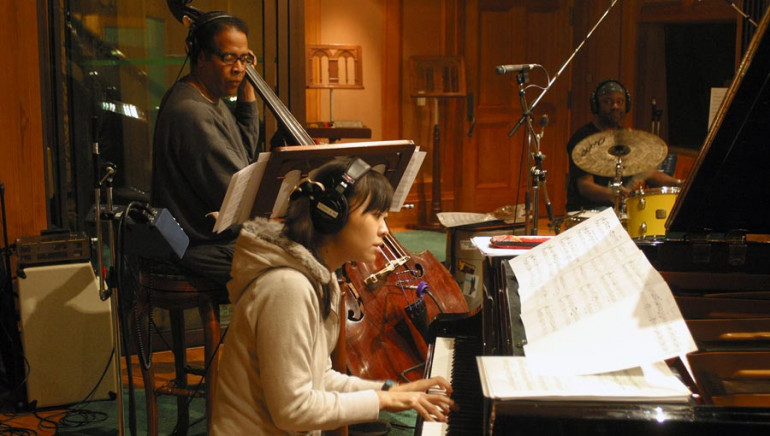Stanley Clarke Stuns Listeners Again with ‘Jazz in the Garden’

In the jazz world, Stanley Clarke is a living legend and a bona fide hero for bass enthusiasts. Along with fellow bassists Ron Carter and the late Jaco Pastorius, he is responsible for bringing the instrument out of the background. “Anyone who’s followed my career could easily see that I’ve sort of been kind of a bass revolutionary, for lack of a better word,” he says over a telephone interview. “Someone’s who’s trying to really move the bass forward—out of the back.”
After a whirlwind of activity in 2008 that included writing music for the soundtrack of feature film Soul Men, tours with SMV (Clarke, Marcus Miller and Victor Wooten) and a Return To Forever reunion, Clarke returns to his roots with Jazz In The Garden (Heads Up), an all-acoustic record made with pianist Hiromi Uehara and drummer Lenny White. “When I first came to New York, I played in acoustic jazz bands with Art Blakley, Stan Getz – and even the early Return to Forever stuff was all acoustic, so it was kind of a full circle for me,” he explains. “It’s not like one day I woke up and said, ‘I think I’m going to investigate acoustic music.’ It’s always been there.”
Over his thirty-year career, Clarke has written for film, singers and orchestras – credits include Hollywood features 2005’s Into The Sun and 1991’s Boyz in The Hood, in addition to producing sessions for the likes of Natalie Cole, Nancy Wilson and the late Maynard Ferguson. “I’m a regular composer, which means I can do pretty much whatever I know and whatever I research,” he says. “I basically have composed a wide variety of music – I write music for singers, orchestras, r&b music, pop, classical, all sorts of things.”
He notes that he writes differently, depending on what he is working on. “Usually when I compose for film, I have the help of a scene and the director telling me—sort of instructing me—how he wants the music to go and he wants it to enhance his picture, and basically I use every musical device I have under my skin to pull something off.”
“When I write instrumental music, what I do is I try to write music that features the bass, and if I’m doing a Stanley Clarke album, I try to do something that presents the bass in a positive, progressive way.”
A consummate artist distinctly aware his inspiration, Clarke says that he is drawn mostly to the feeling of a determined tune. “Certain notes or chords don’t inspire me so much as to what someone does with those notes,” he says. “That is the core of what we are trying to do as musicians. The notes and the chords are secondary. The spirit and the feeling have to be there in order to make it really pleasurable for someone else.”






Community
Connect with BMI & Professional Songwriters